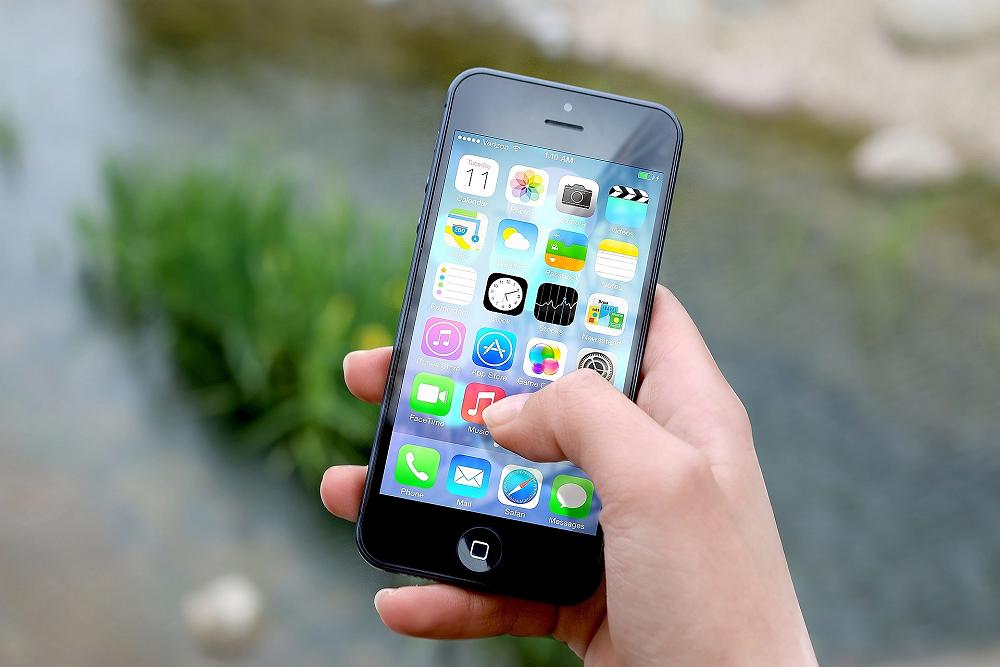
Positive Education
Are students suffering from mobile phone addiction?
Most of us are guilty of excessive mobile phone use. But why? Because phones have become a lifeline for work, leisure and social communication. Recent research shows that 47% of teenagers use their phones whilst on the toilet, and 81% of people never turn their phone off – even when in bed. Although mobile phones can be a great tool to help people connect with each other, spending too much time on it can reduce concentration, decrease quality of sleep and, crucially, negatively impact academic performance.
Keep reading for the three biggest effects of mobile phone overuse on students, and five tips to helps students manage phone use.
WHAT IS PHONE ADDICTION?
Phone addiction is the compulsive overuse of a mobile phone, where someone fears not having their mobile phone with them or not being able to send or receive messages.
Many of those addicted to their phones experience phantom vibrations – the phenomenon of thinking that your phone is vibrating from a notification when it actually is not. A study found that many students today display addictive mobile phone behaviour, where they spend a whopping average of 8-10 hours per day on their phones.
THE THREE DANGERS OF PHONE ADDICTION
Being addicted to your phone can negatively hinder all areas of your life, from physical well-being to your grades at school. These concerns are especially important for students, who are likely to have less self-control than adults. Here are three reasons why students should use the mobile phone less…
1. Reduced concentration
A study found that students were less attentive and performed worse when trying to multi-task and use their phones while doing other activities such as driving, walking, working or learning. While many think that multi-tasking is easy, the reality is that it requires more time, energy and focus to shift between different tasks than it would to simply do one at a time.
Interestingly, the same study also found that the simple presence of a phone, even if it’s not in use, also had the ability to distract and decrease task performance by 20%.
2. Poor sleep
Phone use every day for longer than 20 minutes at a time has been found to lead to:
- Shorter sleep durations
- Later wake-up time on weekends
- Greater daytime tiredness
- Lower
quality sleep
In fact, being on our phones within an hour before bed makes us almost three times as likely to get less than five hours of sleep. This is due to the backlight of the mobile phone tricking our brains into thinking it’s still daytime, suppressing the sleep hormone, melatonin from being released, making it more difficult to fall asleep.
3. Worse school performance
Research has found a significant correlation between phone use and reduced academic achievement. This is because constant interaction with their phone divides students’ focus, making it harder for them to study effectively.
FIVE TIPS TO HELP STUDENTS MANAGE PHONE USE
When it comes to phones, just like everything, moderation is key. Here are five strategies that can help students become less reliant on their phone.
1. Put away your phone when studying
If a student’s phone is out of reach or out of sight, it is much easier to stop the habit of constantly checking it. This is the perfect opportunity to let it charge in a different room, or to give it to a trusted adult to look after for a certain period of time.
2. Turn off sound notifications
The “ding” noises and vibrations are designed to shout for our attention. This encourages students to check their phone immediately. By turning off sound notifications or, even better, putting their phone on airplane mode while they’re studying, students can become in control of when they actually check their phone.
3. Put a timer on your phone use
It is important for students to give themselves a deadline. It’s important to take breaks and relax, but apps and websites are created to be addictive and make time fly. Checking their phone for one message can quickly turn into students checking all their social media. Next thing they know, it's been 2 hours. A timer can help them monitor their phone use – for example, setting one for 10 minutes allows for a guilt-free break that doesn’t eat into precious study time.
4. Understand that multi-tasking is a
myth
We all love to think we’re great at multi-tasking, but the truth is that when we think we’re doing several things at once, we’re actually only switching rapidly between them. Each switch has an attention and energy cost. This not only makes everything take longer – it also makes us less accurate and more prone to making errors. If students focus on one task at a time and devote their full attention to it, they’ll be done much faster with less mistakes.
5. Turn down the phone backlight
Ideally, students should not use their phone at all in the couple of hours leading up to bedtime. But if that’s too difficult, they should at least turn down their backlight, hold their phone at least 12 inches from their eyes and use a blue light filter – this feature now comes built into most phones, but many apps also exist to help. While they don’t suppress it entirely, these tips should help reduce the negative impact phones have on our production of melatonin, the hormone that makes us sleepy.
FINAL THOUGHTS
As with all technology, it is not what it is but how it is used that ultimately defines whether phones will help or hinder someone.
Understanding the impact of constantly being on their phone and being reliant on it will allow students to make more informed decisions about their usage and end mobile phone addiction.
InnerDrive is a mindset coaching company working in education, business and sport to help people realise their true potential.
